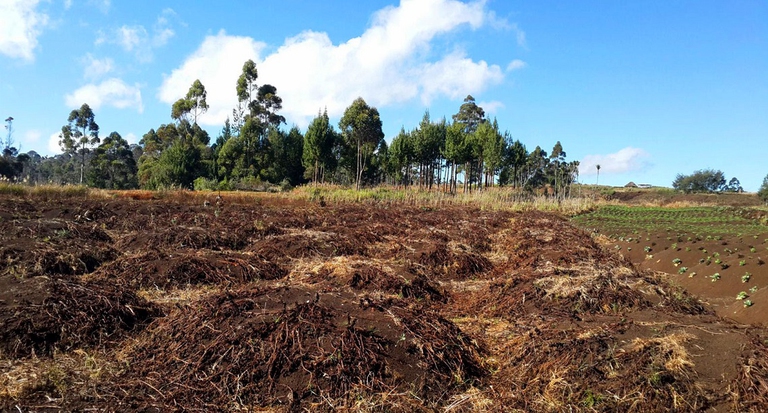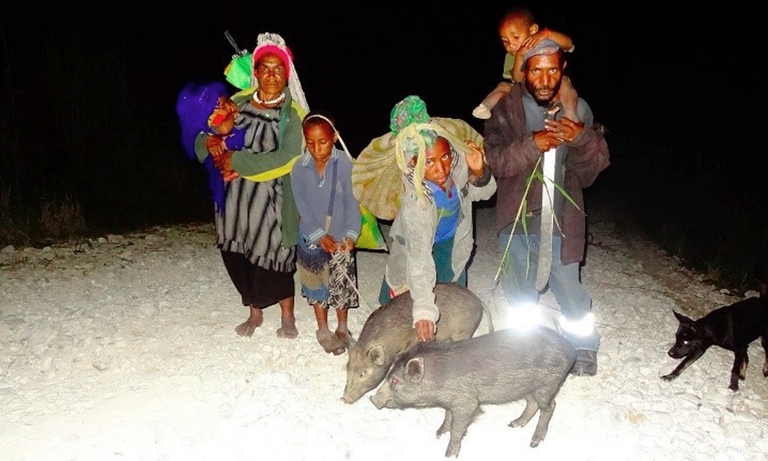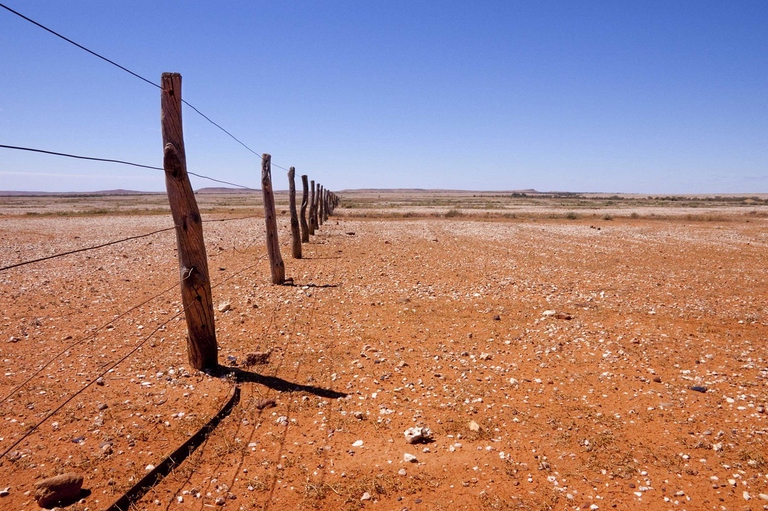
Due to a prolonged drought in Zambia, maize production could fall from the current 3.6 million tonnes to 1.8-2 million tonnes this crop season if the current dry spell which the nation is experiencing continues.
Il fenomeno El Niño, eccezionalmente intenso, ha provocato gravi danni alle colture. I contadini sono arrivati a mangiare argilla e funghi tossici pur di nutrirsi.
Rain doesn’t fall down and soil becomes more and more arid. Drought has been affecting Papua New Guinea for 4 months: 24 people have already died due to malnutrition and contaminated water.
The drought hitting the country is a consequence of the climate cycle El Niño, which periodically heats the Pacific Ocean. This year’s phenomenon, according to meteorologists, is the worst cycle registered over the past 65 years. Even worse than the cycle between 1997 and 1998 that caused the death of 23,000 people.
Most isolated villagers, completely worn out, are eating toxic mushrooms and clay to fight hunger. Crops have been destroyed, water sources have been contaminated and medical and fuel supplies are exhausted.
International doctors working in the area pointed out the presence of forms of leprosy and suspected cases of cholera and typhus fever. “Animals are beginning to die and when we take some meat our bodies feel stomach pains, feel diarrhoea and weak bodies,” said a local doctor, Jimmy Nebni. “We are praying to God for help in this situation”.
An investigation into the effects of the drought, carried out by humanitarian association Uniting Church, has examined 30 villages scattered through the highlands and has found that sweet potato crops have been decimated due to the combined effects of drought and frost since the El Niño began in April.
Sally Lloyd, Australian woman born in Papua New Guinea whose parents were missionaries, and member of the church community, has been long denouncing the crisis in the country. “I observed people eating clay. It’s a special type of clay. Birds and other animals eat it when there is no food. People break it and chew it, it helps with the hunger, and helps if they are feeling sick.”
The lack of food also led many people to eat toxic mushrooms. Indeed, many cases of comatose status have been registered in medical centres, as well as cases of diarrhoea and vomit.
Although recent rainfalls have relieved the situation in some areas, long-term forecasts are anything but encouraging: alert and food insecurity will last for months.
Siamo anche su WhatsApp. Segui il canale ufficiale LifeGate per restare aggiornata, aggiornato sulle ultime notizie e sulle nostre attività.
![]()
Quest'opera è distribuita con Licenza Creative Commons Attribuzione - Non commerciale - Non opere derivate 4.0 Internazionale.
Due to a prolonged drought in Zambia, maize production could fall from the current 3.6 million tonnes to 1.8-2 million tonnes this crop season if the current dry spell which the nation is experiencing continues.
Climate change is the direct consequence of global warming. Here’s everything you need to know about the causes and effects of one of the biggest threats facing our time.
Venezuela’s public sector staff will work only on Monday and Tuesday as the country faces an energy crisis. The government of Caracas is implementing such measures in order to deal with electricity shortages. Los funcionarios de Venezuela trabajarán sólo dos días a la semana para ahorrar energía. https://t.co/oQmOBXp75M El socialismo del S.XXI. — Cristina
After a landslide led to twelve deaths on the island of Ischia, questions have been raised about the impacts of illegal building, tourism, and climate change.
Not much snow, peaks of 19 degrees Celsius in Norway and even 28 degrees in France: official data confirms the anomalously high temperatures of this past winter.
Ocean warming has risen to record highs over the last five years: just in 2019 the heat released into the world’s oceans was equivalent to that of 5-6 atomic bombs per second. The culprit, no doubt, is climate change.
Il Corno d’Africa è in ginocchio per colpa di siccità e carestia. Sono 58mila i bambini che combattono, ogni giorno, contro la fame. È tutta colpa di El Niño.
Lake Poopó, Bolivia’s second largest lake behind Lake Titicaca located at an altitude of 3,686 metres, was once home to endemic fish, bird and plant species, and provided people with their livelihoods. Today, it is completely dry. Fish and birds carcasses are the silent demonstration of the ancient beauty of the area, now
The idea of helping people “on site” so that they decide to remain in their country rather than migrating towards European coasts is increasingly catching on. After all, this would satisfy both those who want to protect their national borders and those who have a solidarity spirit and believe in international cooperation. Thus, why don’t










